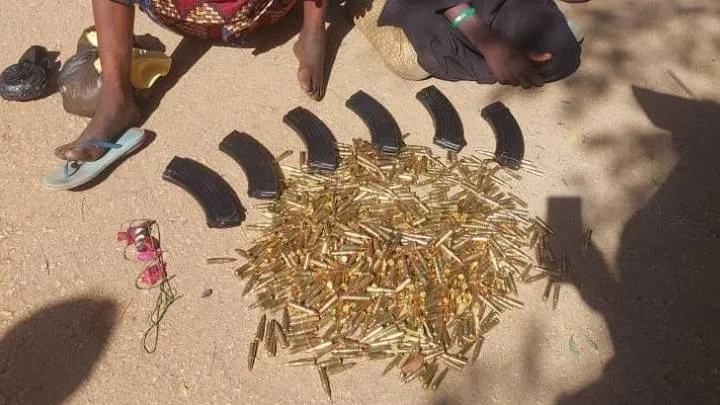On November 20, in his trademark heterodox fashion, El Salvador’s President Nayib Bukele unveiled his government’s latest plan: to build the world’s first “Bitcoin City”.
The circular city – laid out like a coin – will be built at the base of the Conchagua volcano in the eastern region of La Union, where geothermal energy from the volcano is expected to power bitcoin mining.
The city plans to have everything from an airport to housing to commercial real estate, and apart from a 10 percent sales tax, there will be no income, capital gains, property, payroll, or municipal taxes.
According to Bukele, the idea is to create a city that would serve as a shining example of what is possible in the 21st century, having specifically referenced the need for nations and leaders to build modern-day versions of Alexandria.
But why is it being called Bitcoin City? It isn’t because bitcoin will be legal tender – it already is in every city in El Salvador – but because it's being partially funded by a novel financial instrument: “Bitcoin Bonds”.
The idea is this: the El Salvador government will be issuing a $1 billion tokenised bond that will carry a 6.5 percent yield for investors. Approximately $500 million of it will go towards building the city’s infrastructure and bitcoin mining, and the other $500 million from the bond offering will be put towards purchasing more bitcoin.
Developed by Blockstream on the Liquid Network, the bonds will be US dollar-denominated over 10 years. Following a lock-up period of five years, El Salvador will start to sell its cryptocurrency holdings and pay an added dividend to bond holders.
The annualised yield back to investors is estimated to be a staggering 146 percent by the 10th year, according to Blockstream’s optimistic projection of bitcoin’s price hitting one million dollars. This, in comparison, with the benchmark 10-year yield on El Salvador’s outstanding government bonds that currently stands at 13 percent.
Blockstream’s chief strategy officer Samson Mow said he expected other countries to follow suit, and speculated the move will absorb enough bitcoin to push up its value. That would allow El Salvador to pay off the bond with profits made from selling the bitcoin again.
Crypto exchange Bitfinex has been tabbed as the book runner for the bond, and Mow said it will be sold in $100 tranches to “democratize access to the bond”.
Bukele said the government plans to issue the bitcoin-backed bond sometime in 2022.
‘An act of desperation’?
Some observers have questioned the move, saying the new offering might struggle to attract investors because the bond would pay interest at a lower rate than the country’s conventional dollar bonds.
Marc Chandler, managing director at Bannockburn Global Forex, called the move “an act of desperation” and believes it’s a ploy to achieve lower interest rates.
“It’s trying to secure a lower yield by the bitcoin wrinkle,” he tells TRT World. “It’s not a bitcoin bond, it’s a dollar bond.”
Nor have credit rating agencies looked favourably upon El Salvador’s bitcoin gambit.
After the country adopted bitcoin as legal tender in June, Moody’s downgraded the central American country’s long-term, foreign-currency issuer and senior unsecured ratings from B3 to Caa1, a “junk-grade” credit rating – or obligations judged to be subject to very high credit risk.
Lyn Alden tells TRT World that the announcement to issue bitcoin-backed bonds is unlikely to change that negative outlook from rating agencies and financial institutions.
“This bond sale looks very risky to institutions that are not particularly bullish on bitcoin’s fundamentals, and is mainly attractive to investors that are bullish on bitcoin,” says Alden, founder of Lyn Alden Investment Strategy, an advisory firm that provides services to both retail and institutional investors.
“Even for bitcoin bulls, there is significant counterparty risk with this bond.”
Chandler doubts that the retail investment community will show any interest, nor will any nations follow El Salvador’s lead, just as he doubted corporate treasurers would follow Tesla when it bought $1.5 billion bitcoin earlier this year.
“It is a bet on the future of bitcoin’s price,” Chandler continued, underlining that given questions over the intrinsic value of the world’s largest cryptocurrency, it’s effectively “a crapshoot”.
“If bitcoin appreciates, the investor may make more money than on the current higher yielding dollar debt,” he says, but adds that it still would not solve the country’s existing economic and development challenges.
Best and worst-case scenarios
While crypto enthusiasts are likely to be the investors most attracted by the bitcoin bond, why not just purchase bitcoin directly instead of taking on risk via a debt-distressed emerging market?
Alden agrees that buying bitcoin straight up is a better strategy, but points out there are some pools of capital which have mandates – like owning bonds or equities – and don’t have any avenue to express interest in bitcoin within their fund.
“If someone runs a pool of capital like that and happens to be very bullish on bitcoin, then any reasonable bitcoin-linked equity or bond can be quite attractive for them as a security.”
Additionally, some might want to invest to contribute to the greater cause of bitcoin’s development in the country.
“There may be some bitcoin-enthusiast investors that are willing to risk some capital here for the benefit of El Salvador and the intangible benefits that it can add to the Bitcoin network if the project is successful over the long term,” says Alden.
She believes a scenario where the move pays off would mean the price of bitcoin doing well compared to the dollar over the next 5-10 years, and El Salvador’s being able to profitably mine additional bitcoins.
An increase in tourism revenue and foreign investment by attracting bitcoin investors would be another gauge of success – and so far it seems to be working, with many wealthy and prominent investors regularly traveling to El Salvador.
“They are positioning themselves as a Bitcoin hub, which could certainly work out well,” Alden says.
For Francisco Dominguez, one of over two million Salvadorans living in the US, a city staked to the future of bitcoin remains a highly risky proposition.
“I’m not sure how the Salvadoran people might feel about this if – and when – we hit a bear market,” he tells TRT World. “Things are moving so quickly and there’s a lot of excitement around bitcoin and how it can bring financial freedom, but I wonder if the government understands the volatility risk and if they’re doing enough to educate people on it.”
While supportive of Bukele’s foray to make bitcoin legal tender, Dominguez is wary of the need for an additional gamble like Bitcoin City in a country racked with so many other pressing issues.
And if things go wrong, the “repercussions could be extreme,” he worries. “It would be a PR nightmare for the government if bitcoin experiences a drawdown. What happens then?”
Alden forecasted some variables that could sink Bitcoin City, including mining infrastructural hitches that make it unprofitable, or not being able to sustain international interest in the project.
Being so dependent on one man’s vision poses another notable risk. “They could have deteriorating governance, such as President Bukele morphing into a dictator over time, or making bad governance decisions,” cautions Alden – or more simply, a scenario where a new president comes in that “opposes the project and reverses course in a destructive way.”
At the moment, questions remain over when exactly the government plans to purchase the $500 million worth of bitcoin, in addition to what the legal rights of would-be buyers would be.
It is also not known what would happen to the new bonds if the country defaulted on its existing traditional bonds. The government’s next bond deadline is an $800 million repayment due in January 2023.























